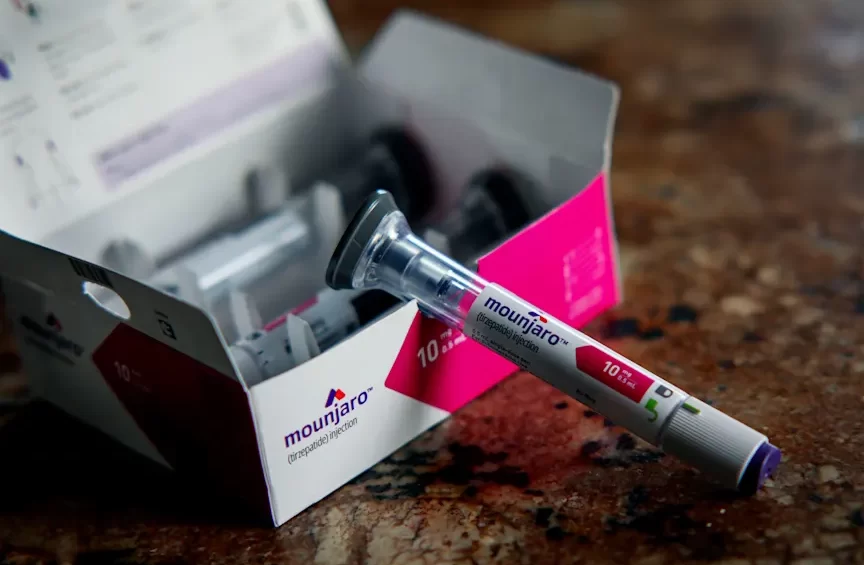When patients come into my clinic to discuss newer options for type 2 diabetes and weight loss, Mounjaro (tirzepatide) is a name that often comes up. With its rising popularity, people understandably have questions about side effects. One of the concerns I hear frequently is whether Mounjaro causes hair loss (Mounjaro Side Effects Hair Loss). When I talk with patients about this concern, I usually highlight a few key points.
Does Mounjaro Cause Hair Loss?
So far, hair loss has not been listed as a direct side effect of Mounjaro in clinical trials. The most commonly reported issues include nausea, vomiting, diarrhea, and reduced appetite. That said, some patients taking Mounjaro (and similar medications such as semaglutide) have reported experiencing hair shedding.
When we look deeper, the likely cause is not the medication itself but the rapid weight loss that sometimes occurs. Whenever someone loses weight quickly, the body may interpret it as a form of stress. In response, hair follicles can enter a resting phase, which leads to a condition known as telogen effluvium. What I usually tell patients is that this phase doesn’t last forever — the hair typically returns once the body adapts.
In short, Mounjaro is not directly toxic to hair follicles. Rapid weight changes can stress the body in ways that show up in your hair. If you start to see thinning, bring it up with your doctor so we can rule out other possibilities, including thyroid conditions or low nutrient levels.
Other Side Effects Patients Report
A few people have told me they feel more thirsty on Mounjaro, even though it isn’t a classic side effect. While increased thirst is not a widely recognized side effect, some patients do experience it, especially if they are eating less or experiencing mild dehydration due to nausea or vomiting. If that happens, the best step is to drink enough water and keep an eye on your blood sugar.
Another question I occasionally hear is about Mounjaro’s swollen lymph nodes. While not a typical reaction, any unexplained swelling of lymph nodes should always be evaluated. Sometimes it can be related to immune system activity, an infection, or in rare cases, an inflammatory response to medication. If you notice persistent swelling, seek medical attention rather than assuming it is just from the injection.
Comparing Zepbound Versus Mounjaro
Some people have been curious about Zepbound and how it compares to Mounjaro. Patients sometimes ask me about Zepbound versus Mounjaro, and the comparison is understandable because both contain tirzepatide. The main difference is that Mounjaro is FDA-approved for type 2 diabetes management, while Zepbound has been approved specifically for weight loss in patients who are overweight or obese.
From a side effect perspective, the profiles of the two medications are nearly identical since the active ingredient is the same. That means the discussion about gastrointestinal upset, temporary hair loss from weight reduction, or increased thirst applies to both. The choice between the two often comes down to whether the primary treatment goal is diabetes management or weight reduction.
What Patients Should Do
Seeing changes like hair loss, feeling extra thirsty, or swollen lymph nodes? Bring them up with your healthcare provider so they can check things out. We want to make sure symptoms are not being caused by another medical condition.
Supporting your body through treatment is also important. Patients who lose weight quickly should ensure they are getting enough protein, vitamins, and minerals, since nutritional deficiencies can make hair loss worse. Simple measures such as proper hydration, balanced meals, and routine follow-up appointments go a long way.
Final Thoughts on Mounjaro side effects hair loss
Many people I treat do well on Mounjaro, often seeing their blood sugar improve and losing a bit of weight. Hair shedding can be concerning, and it’s worth mentioning, but in most cases, it’s linked to the body adjusting to quicker weight changes rather than the medication itself.
Everyone reacts a little differently. While most people tolerate Mounjaro without much trouble, some notice side effects like stomach upset, increased thirst (does Mounjaro make you thirsty?), or even swollen lymph nodes. If any of these come up, it’s always best to talk to your doctor rather than wait.
There’s also been interest in comparing Zepbound versus Mounjaro. Because the active ingredient is the same, the effects are alike, though the decision usually comes down to whether the priority is diabetes management or shedding pounds.
The key takeaway is to pay attention to your body, stay hydrated, and keep your healthcare team in the loop so any concerns can be addressed promptly.






